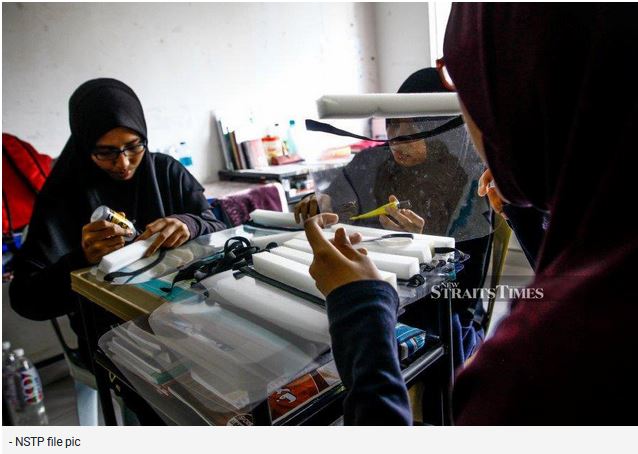Higher Education Commission can take us higher
Emeritus Professor Tan Sri Dato' Dzulkifli Abdul Razak
Opinion - New Straits Times
August 16, 2021
The sudden departure of the higher education minister recently can be turned into a golden opportunity to take the sector up to the next level on many fronts.
Foremost is the role of Higher Education Commission (HEC) as the formal structure to regulate and facilitate the delivery of education at the all institutions of higher education (IHEs) throughout the country.
It replaces the role of the ministry which is regarded by many as fledgling and in dire need for a rejuvenation. In contrast, HEC can be a better substitute as observed in many countries as being more successful in achieving the objectives set for higher education (HE).
One main difference for this is the involvement of professionals in driving HE forward sans politicising it. This has been well recognised for a long time but has little political will to do away with in a serious way.
There have been announcements to "liberate" education from politics by reinstituting "autonomy" in all IHEs with academic freedom as the thrust to develop HE.
This is to allow the flow of innovative ideas throughout the system in order to ignite creative hearts and minds, unmuffled by narrow partisan political considerations.
In fact, education has been stereotyped to produce "unthinking" individuals who are less threatening, and more compliant in preserving the status quo one way or another.
To ensure this, appointees to IHEs are always tainted by political interest as it is today ranging from the positions of executives to that of the related governing bodies.
Add to this is the level and type of governance that is also politically biased. This further constrained the real practice of education subjected to equally draconian rules and regulations.
One is: the piper calls the tune regardless how out of the tune is it in the world of education the world over. For example, Unesco's International Bureau of Education outlines what education governance is about in putting right worldview as a responsible autonomous entity.
It includes holding the government accountable in matters of education and not just the other way round as it is currently (mis)understood and practice tied to funding. Even though it has dipped dismally, yet the government is not held accountable despite education is public good and a basic right.
In over 50 years of involvement in the HE sectors, and almost half leading various IHEs, it can be amply demonstrated that the governance of IHEs has spiralled downwards. It is made worst when the bureaucracy took little interest in putting the situation right.
Thus, by establishing a HEC much of these outstanding issues can be avoided once and for all since it is a flexible independent body made of leaders from the education sector, as well as various stakeholder including representatives of the civil society.
The aim is to examine HE policy and its implications based on existing evidences to be recommended for policy-decisions and implementations.
In the current situation, all these took place in a sphere of unprecedented uncertainty which must be dealt with not by striving for control, but "by developing resilience, wisdom, creativity, inclusion, diversity," to cite a quote from Unesco Futures of Education Ideas LAB.
In the context of Covid-19 pandemic, the challenge is to leverage on the transformative power of IHECs to meet the desired changes through empowerment, flexibility, accountability and resilience. Here speed is the essence, another "downside" of the current system putting IHECs at a crossroad.
In summary, IHEs must now decide in which future direction to go, beyond just transforming curriculum, mode of learning delivery, establishing training support and research all within an "old" pre-Covid-19 framework.
Instead, it must embrace "new" and "futuristic" organisational structures more suited to "humanise" education into a more holistic, values-based model to serve humanity as demanded by the pandemic.
The whole is greater than the sum of its part in demonstrating that all lives matter in repurposing HE of "learning to become," as a part of a Unesco global initiative to reimagine how knowledge and learning can shape the future of humanity and the planet, post-pandemic.
Otherwise, according to Unesco (2020), HE is likely to experience the highest dropout rate with a projected 3.5 percent decline in enrolment, and in 7.9 million fewer students. This we can avoid if we are courageous enough to embark on a brand new normal of a HEC for the first time in Malaysia.
The writer, an NST columnist for more than 20 years, is International Islamic University Malaysia rector
The views expressed in this article are the author's own and do not necessarily reflect those of the New Straits Times

